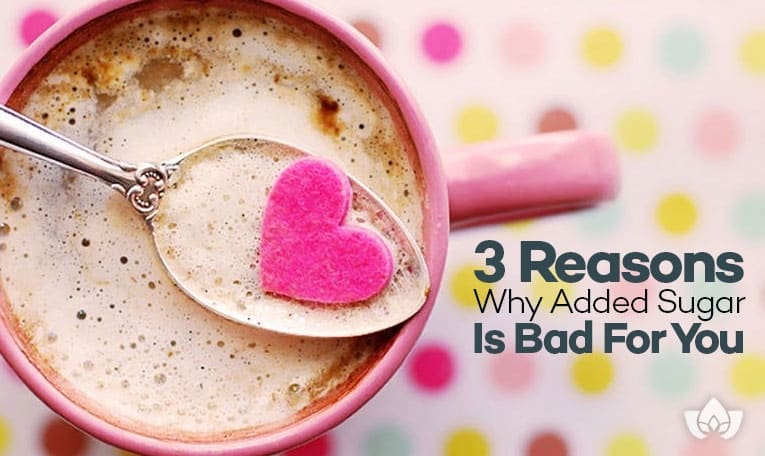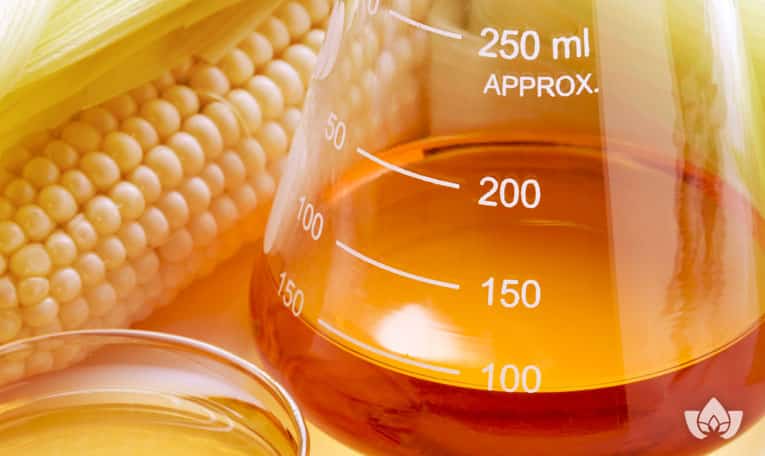
There are lots of things in our food we should be avoiding.
That's no secret to any health-conscious person.
As a naturopath, most of my patients already know this.
And there's some harmful stuff out there.
But arguably the worst of these is added sugar.
There are so many reasons why this stuff is terrible for you.
But first of all, what is added sugar in the first place?
What is Added Sugar?
In the broadest sense, you can lump sugar into two separate categories:
Naturally occurring sugar
Naturally occurring sugars are things like fructose, which you'll find in fruit, and lactose, which you'll find in dairy. They show up naturally in these foods, and this article is not about them.
Added sugars
Added sugars, on the other hand, are things like sucrose and high fructose corn syrup. They're made artificially, and they're added to sweeten things that wouldn't otherwise be sweet.
But why is added sugar so terrible?
1: It Has Zero Nutritional Value
Added sugar is loaded with calories. So are a lot of other foods; a pancake breakfast, for example, can have more than 1000 calories in it.
But here's the thing – added sugar has absolutely no essential nutrients in it.
This is why we call it empty calories.
If a significant number of the calories you take in come from added sugar, that can mean a big part of your diet is providing you with no nutritional value.
This creates the strange situation we face these days in the western world where people are simultaneously overweight and undernourished.
So essentially, added sugar is an entirely unnecessary part of your diet.
In fact, you could live a full, healthy, fulfilling life without having eaten a single bit of added sugar.
2: Sugar Is Highly Addictive
When you eat sugar, your brain releases dopamine in its reward centre.
And the way this works is similar to what happens when you use addictive drugs.
A 2008 study published in Neuroscience & Biobehavioral Reviews tested rats to see if they could develop a dependence on sugar.
By intermittently giving the rats access to sugar, they could get them hooked on the stuff.
They craved it in the same way rats who are addicted to drugs crave their next fix.
So if you have a personality that's susceptible to addiction, you may be at a higher risk of developing a sugar dependency.
But the worst thing about sugar addiction is the culture surrounding sugar. If you offered someone a drink, for example, and they politely declined because they were a recovering alcoholic, would you push them to take the drink?
Of course not.
But if someone is offered a slice of cake and they say they're cutting back on sugar, the reaction is generally something like “come on, one slice won't hurt!” or “it's bad luck not to have birthday cake!”
On top of this, sugar-added products are everywhere. If you want to stop drinking, don't go to bars and you'll be able to more easily resist temptation. If you want to stop eating added sugar though, you'll need some strong willpower.

3: Added Sugar Is Hard On Your Liver
When you eat added sugar, your body breaks it down into two simpler sugars – fructose and glucose. Glucose is the more common sugar – it's found in every single living organism on the planet, which means it's in every single thing you eat.
We need the stuff.
Fructose, on the other hand, isn't necessary for survival. When you eat fructose, it goes to your liver to be metabolized.
Now, this is one of your liver's jobs, so a moderate amount of fructose (like from eating fruit) is perfectly fine.
Your body will turn it into glycogen, and store it in your liver until your body needs to use it to keep your blood sugar levels at a healthy level.
But your liver can only store so much glycogen.
And if your liver is already full, it will turn that excess fructose into fat.
So the more added sugar you eat, the more fat accumulates in your liver, which can cause some serious problems.
Sugar, Not Fat, Makes You Fat
In the past, doctors, nutritionists, and health gurus of all stripes suggested low-fat diets as the way to fight obesity and maintain a healthy weight.
It makes sense, right? You don't want fat, so don't eat fat.
Sadly, this isn't the case. It's sugar, not fat, that creates fat in our bodies.
Study after study has confirmed the causal link between sugar consumption and obesity. It's also linked with diabetes and heart disease.
For example, if you drink one or two sugary drinks per day, you have a 26% greater chance of developing type 2 diabetes (source). You also have a 20% higher risk of having a heart attack, or dying from one (source).
In children, it's even worse. For each can of soda a child consumes in a day, the odds of obesity increase by 60% (source).
These are just a few horrifying examples of what sugar can do to our bodies.
Contact Mindful Healing Clinic
If you're hooked on sugar, there is help available.
Contact us at the Mindful Healing Clinic to book your FREE health and wellness session.
You'll get a chance to explain your concerns and ask any questions, and from there we'll help you understand what comes next.
Contact the Mindful Healing Clinic to book your FREE health and wellness session today.
Until next time,
Dr. Maria Cavallazzi, N.D
Mindful Healing Integrative Naturopathy
251 Queen St S Unit 4,
Mississauga, ON L5M 1L7
- https://goo.gl/maps/KYspifT7J232
Dr. Maria Cavallazzi is a medical doctor from Colombia where she practiced as a family physician for 8 years until she moved to Canada 16 years ago.
To discover additional info on health, wellness, and alternative medicine, please visit us here: naturopathy